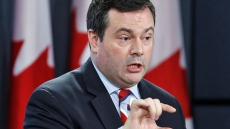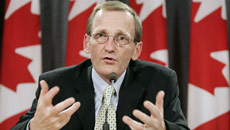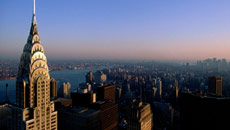VANCOUVER - The average Canadian family is spending more on taxes than on food, shelter and clothing combined, according to a new study by the Fraser Institute, but at least one economist cautions that the findings need to be seen in context.
According to the Vancouver-based think-tank, the average Canadian family earned $77,381 in 2013 and paid $32,369 in total taxes — or 41.8 per cent of income — compared with 36.1 per cent for food, shelter and clothing combined.
By comparison, in 1961 the average family earned about $5,000 and spent 56.5 per cent of its income on food, shelter and clothing, while $1,675 went to taxes (33.5 per cent).
According the Fraser Institute's research, tax increases greatly outpaced the increase in the Consumer Price Index (682 per cent), which measures the average price that consumers pay for food, shelter, clothing and other items.
However, Erin Weir, an economist with the United Steelworkers union, said that while it's true that Canadians in the early sixties paid less tax, that was before the full rollout of universal health-care and public pensions.

"It's no surprise that the decision to have a public health-care system would increase taxes as a share of income but I think most Canadians would see that as a very wise expenditure and a good use of money," he says.
And Weir also notes that the study's findings can be misleading because it assumes that some corporate income taxes are paid by individuals.
"If an oil company pays the Government of Alberta to extract a barrel of oil, the Fraser Institute counts that as a tax burden on individuals," he said.
"It comes up with this large percentage by assuming that all these taxes are paid by individuals," he said.
The study analyzed data on income taxes, payroll taxes, health taxes, sales taxes, property taxes, fuel taxes, vehicle taxes, import taxes, alcohol and tobacco taxes.
The Fraser Institute says the total tax bill represents both visible and hidden taxes paid to the federal, provincial and local governments.

"It's really tough to get a sense of all the taxes you pay because there's so many," said Charles Lamman, one of the study's lead researchers.
"We've brought that info to the forefront so Canadians can basically tackle the question of whether they're happy with that amount."
The think-tank says that since 1961, the average Canadian family's total tax bill has increased by 1,832 per cent, moving past increases in shelter costs (1,375 per cent), clothing (620 per cent) and food (546 per cent).





